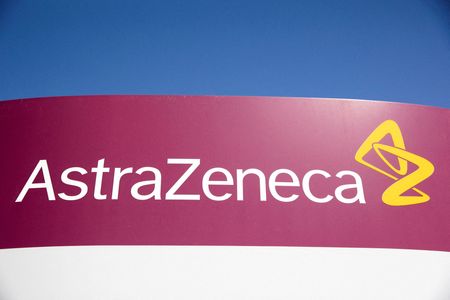By Pushkala Aripaka
(Reuters) -AstraZeneca’s experimental therapy anselamimab did not meet the main goal of a late-stage study for the treatment of a rare condition that causes a buildup of protein deposits in the body, the drugmaker said on Wednesday, sending shares down 1.3%.
The study was assessing a combination of how often patients with advanced, heart-related AL amyloidosis were hospitalised for cardiovascular issues, and death from any cause over a period of time, when compared with placebo.
While anselamimab did not achieve statistical significance for the overall population in the study, the therapy showed clinically meaningful improvement in a sub-group of patients, AstraZeneca said, without giving details of that group.
JPMorgan analyst James Gordon said that he expects the study “failure in all comers to be seen as a minor negative,” adding that while AstraZeneca did not give details of the subgroup in which anselamimab worked, he believes the drugmaker may pursue regulatory approval there.
AL amyloidosis, also referred to as light chain or primary amyloidosis, leads to deposits of amyloid protein in the body because of defective plasma cells, and diagnosis is often delayed.
All patients in the AstraZeneca study had received standard of care for the plasma defect, and anselamimab or a placebo was given on top of that.
If left untreated, the accumulation of the deposits, particularly in the heart and kidneys, can progressively impair the quality of life causing organ damage and dysfunction, and lead to heart failure.
“Anselamimab is the first and only investigational fibril depleter to show clinical benefit in AL amyloidosis, and these results underscore its potential to address a critical treatment gap in a prespecified subgroup of patients,” said Marc Dunoyer, CEO of AstraZeneca’s rare diseases unit, Alexion, which is developing the treatment.
Anselamimab is a type of monoclonal antibody that binds itself to specific targets in the amyloid deposits and helps break them down. The company has forecast peak sales potential of $1 billion to $3 billion for the therapy, against overall annual sales of upwards of $50 billion.
AstraZeneca said it was evaluating the complete data on anselamimab, adding that it plans to share data with health authorities.
(Reporting by Pushkala Aripaka in Bengaluru; Editing by Vijay Kishore, Mrigank Dhaniwala and Louise Heavens)









